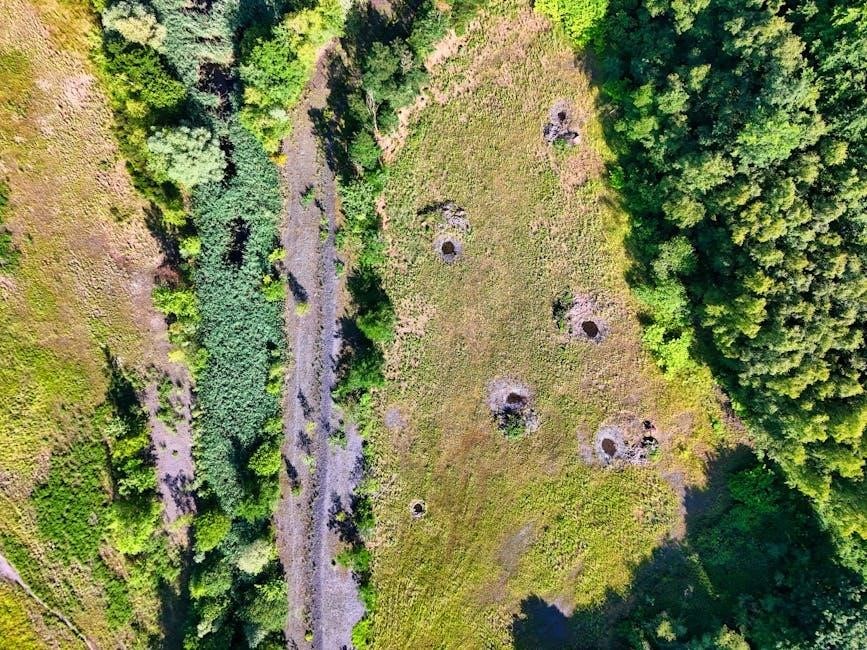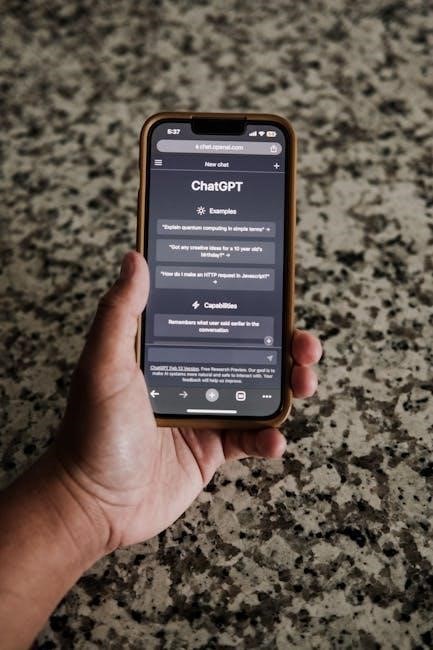
Understanding the Habitat for Humanity Application Process 2023
The 2023 Habitat for Humanity application process involves a series of steps, including watching an orientation, gathering documents, and submitting a completed form. Eligibility is based on income, residency, and need for housing. Applications are reviewed, and selections are made based on these criteria. Approved applicants partner with Habitat to build or rehabilitate homes, paying an affordable mortgage. The process emphasizes a “hand up, not a handout” approach, fostering long-term stability for families in need. Deadlines and specific requirements vary by location, so checking local guidelines is essential.
Habitat for Humanity is an ecumenical Christian housing ministry dedicated to addressing the need for affordable housing worldwide. Founded in 1976, the organization operates globally, with local affiliates working to provide safe and decent shelter for low-income families. Their mission revolves around creating opportunities for homeownership, fostering community engagement, and advocating for housing affordability. Habitat for Humanity operates on the principle of “a hand up, not a handout,” emphasizing partnership and mutual responsibility between the organization, volunteers, and future homeowners. By building and rehabilitating homes, they help families achieve stability and break the cycle of poverty. This approach has made Habitat a recognized leader in addressing housing needs across the globe.
Overview of the 2023 Application Process
The 2023 Habitat for Humanity application process is designed to be straightforward and accessible for potential homeowners. It begins with an online orientation to familiarize applicants with the program and its requirements. Candidates then obtain and complete the application form, ensuring all sections are filled out accurately. A detailed document checklist guides applicants in gathering necessary paperwork, such as proof of identity, income verification, and residency documents. Once completed, the application is submitted to the local Habitat affiliate for review. The process emphasizes fairness and transparency, with selections based on eligibility criteria like financial need, willingness to partner, and ability to repay an affordable mortgage. Deadlines for submission vary by location, so applicants are encouraged to apply early to secure consideration for the program.

Eligibility Criteria for Habitat for Humanity Homeownership
Applicants must meet income limits, demonstrate a need for housing, and show ability to repay an affordable mortgage. Residency and citizenship requirements also apply, ensuring eligibility aligns with local guidelines and program goals.
Income Requirements
Habitat for Humanity requires applicants to meet specific income criteria, which vary by location and household size. Generally, applicants must earn between 30% and 80% of the area’s median income. Income verification includes pay stubs, tax returns, and employer letters. Gross income from all sources is considered, including wages, benefits, and self-employment earnings. Applicants must demonstrate the ability to repay an affordable mortgage, typically set at 28-30% of their gross income. Income limits ensure the program serves low-to-moderate-income families. Local affiliates may adjust income ranges based on regional cost of living. Meeting income requirements is a critical step in the eligibility process for homeownership through Habitat for Humanity.
Residency and Citizenship Requirements
Applicants must meet specific residency and citizenship criteria to qualify for Habitat for Humanity’s 2023 homeownership program. They must be permanent legal residents of the United States for at least five years or be U.S. citizens. Proof of citizenship or legal residency, such as a valid passport, Green Card, or Certificate of Naturalization, is required. Additionally, many local affiliates require applicants to have lived or worked in the specific service area for a minimum period, often 12 months. Residency documentation, like utility bills or lease agreements, may also be requested. These requirements ensure that applicants have a stable connection to the community and meet federal and local guidelines. Citizenship and residency verification are critical steps in the eligibility process.
Need for Adequate Shelter
Applicants for Habitat for Humanity’s 2023 program must demonstrate a clear need for adequate shelter. This includes living in overcrowded, unsafe, or substandard housing, or facing high rent burdens. Additionally, those in temporary or subsidized housing may qualify. Habitat prioritizes families whose current living conditions significantly impact their health, safety, or well-being. Examples include structural issues, lack of essential amenities, or unsafe neighborhoods. Applicants must provide documentation, such as photos or reports, to verify their housing situation. This requirement ensures that Habitat’s resources are directed to those most in need, aligning with their mission to provide affordable, decent housing. By addressing inadequate shelter, Habitat helps families achieve stability and improve their quality of life.

Steps to Complete the Habitat for Humanity Application
Complete the application process by watching the presentation, obtaining the application form, gathering required documents, filling out the form accurately, and submitting it by the deadline.
Watch the Application Presentation
Watching the application presentation is the first step in the Habitat for Humanity process. This presentation, available on their official website, provides an overview of the program, eligibility criteria, and the steps to apply. It explains the requirements for income, residency, and need for housing, as well as the unique aspects of Habitat’s homeownership model. The presentation also outlines the responsibilities of partnering with Habitat, such as contributing sweat equity and paying an affordable mortgage. Viewing this presentation ensures applicants understand the process and expectations before proceeding. It is a mandatory step and must be completed before obtaining the application form. This step helps applicants determine if they are a good fit for the program and prepares them for the next stages of the application process.
Obtain the Application and Document Checklist
After watching the presentation, the next step is to obtain the application and document checklist. These materials can be downloaded from the Habitat for Humanity website or picked up in person at a local Habitat office. The checklist outlines all required documents, such as proof of identity, citizenship, income, and residency. It is essential to carefully review the checklist to ensure all necessary paperwork is gathered. This step helps applicants prepare for the submission process and avoids delays. The checklist also provides clarity on the types of documents accepted and any additional requirements specific to the 2023 application cycle. Having these materials ready ensures a smooth and efficient application process.
Gather Required Documentation
Gathering the required documentation is a critical step in the Habitat for Humanity application process. Applicants must collect and copy essential documents, such as proof of identity, citizenship, income, and residency. Commonly needed items include driver’s licenses, passports, Social Security cards, pay stubs, tax returns, and bank statements. Additionally, applicants may need to provide proof of employment, rental agreements, and other financial records. Organizing these documents in advance ensures a smooth application process. The checklist provided by Habitat will guide applicants on the specific documents needed, helping them avoid missing any critical items. This step is vital for a complete and timely submission of the application.
Complete and Sign the Application Form
Once all documents are gathered, carefully complete the Habitat for Humanity application form. Ensure all information is accurate and thorough, as incomplete or incorrect data may delay processing. The form typically includes sections for household information, financial details, employment history, and residency verification. Married couples and all household heads must sign the application. By signing, applicants confirm the accuracy of the provided information and acknowledge the program’s terms. The completed form should be reviewed for completeness before submission. Remember, accuracy and transparency are crucial for a successful application. Once signed, the form is ready to be submitted along with the required documentation.

Required Documents for the 2023 Application
The 2023 Habitat for Humanity application requires proof of identity, citizenship, income, residency, and additional financial documents. These documents ensure eligibility and facilitate the review process.
Proof of Identity and Citizenship
Applicants must provide valid proof of identity and citizenship for all household members. Acceptable documents include a driver’s license, state ID, or U.S. passport. Citizenship can be verified with a U.S. passport, green card, or naturalization certificate. Copies of these documents must be submitted alongside the application. Ensure all identification is current and valid, as expired documents may delay processing. This step verifies legal residency and eligibility for the program. Additional documentation may be required based on individual circumstances. Check local guidelines for specific requirements and ensure all household members provide necessary proofs to complete the application process successfully. This step is critical for determining eligibility and moving forward in the selection process.
Income Verification
Applicants must provide proof of income to demonstrate financial stability and eligibility. This includes recent pay stubs, tax returns, and W-2 forms. Income verification ensures applicants meet the program’s income requirements, which vary by location and household size. Additional documentation, such as letters from employers or Social Security award letters, may be required. Income limits are set to ensure affordability and are typically based on the area’s median income; All income sources for household members must be disclosed, including self-employment or other forms of earnings. This step ensures that applicants can manage monthly mortgage payments and other financial obligations. Accurate and complete income verification is critical for a successful application. Check local guidelines for specific income thresholds and required documents.
Residency Proof
Applicants must provide documentation to verify their residency in the specified area. This ensures eligibility based on local requirements. Common documents include utility bills, lease agreements, or driver’s licenses. Proof of residency confirms the applicant has lived in the area for a required period, typically at least 12 months. This step ensures the applicant has a genuine need for housing in that specific region. Local Habitat affiliates may have additional residency criteria, so checking specific guidelines is recommended. Residency proof is a critical step in determining eligibility and must be submitted along with the application; Accurate and recent documentation helps streamline the review process. Ensure all household members meet the residency requirements for a smooth application process.
Additional Financial Documents
In addition to income verification, applicants must provide further financial documents to assess their economic stability. These include bank statements, pay stubs, and tax returns from the past year. A detailed list of debts and monthly expenses is also required to evaluate financial capacity. Applicants may need to submit proof of savings or any other sources of income. These documents help determine the applicant’s ability to manage mortgage payments and other housing-related costs. Ensuring all financial information is accurate and complete is crucial for a smooth review process. Additional financial documents may vary by location, so checking specific requirements is essential. This step ensures applicants can sustain homeownership responsibilities responsibly.

Submitting the Application
Applications can be submitted online, by mail, or in person at local Habitat offices. Ensure all required documents are included to avoid delays. Deadlines vary by location.
Application Submission Guidelines
Submit your completed application and required documents to the designated Habitat for Humanity office. Applications can be submitted online, via mail, or in person. Ensure all forms are signed and accompanied by the document checklist. Required documents include proof of identity, citizenship, income, and residency. Incomplete applications will not be reviewed. Check local deadlines, as they vary by affiliate. Once submitted, allow 30 days for processing. Applicants may be contacted for additional information. Verify submission methods and deadlines with your local Habitat office to ensure timely processing. Proper submission adheres to program guidelines and ensures eligibility for the homeownership program.
Deadline for Submission
Application deadlines for Habitat for Humanity vary by location. Many affiliates set deadlines such as June 30 or August 1, 2023, to allow time for processing. Submitting by the deadline ensures consideration for the current cycle. Late applications may be deferred to the next cycle. Check your local Habitat office’s specific deadline, as they may differ. Missing the deadline could delay your eligibility. Confirm the exact cutoff date for your area to ensure timely submission; Deadlines are strictly enforced to maintain fairness and efficiency in the selection process. Plan accordingly to meet the specified deadline for your region.

What Happens After Submission?
After submitting the application, it undergoes a review and evaluation. The selection committee assesses eligibility based on income, residency, and need. Approved applicants are notified and move forward with the homeownership process, partnering with Habitat to build or rehabilitate their home.
Application Review and Evaluation
The Habitat for Humanity application undergoes a thorough review and evaluation by a committee. This process ensures fairness and transparency, assessing eligibility based on income, residency, and need for housing. The committee verifies all submitted documents, including proof of identity, citizenship, and financial stability. Each application is evaluated against the program’s criteria, focusing on the applicant’s ability to afford an affordable mortgage and their willingness to partner with Habitat. The review team may request additional information if needed. Once the evaluation is complete, applicants are notified of the decision, whether approved, denied, or requiring further steps. This process typically takes 30 days, ensuring a careful and equitable assessment of each candidate’s qualifications.
The Selection Process
The selection process for Habitat for Humanity is designed to be fair and nondiscriminatory. Applications are reviewed by a committee that assesses eligibility based on need, ability to pay, and willingness to partner. The process evaluates applicants’ financial stability, residency, and housing circumstances. Once applications pass the initial review, they are presented to the Habitat board for final approval. Approved families are notified and move forward to the next steps, while others may receive feedback or be encouraged to reapply. This process ensures that Habitat selects families who will truly benefit from the program and are committed to the partnership. The selection is based solely on the established criteria, ensuring equality and transparency for all applicants.

Habitat for Humanity Homeownership Program Details
Habitat for Humanity offers affordable homeownership through a unique partnership model. Families contribute sweat equity, helping build their homes alongside volunteers. Homes are sold at no profit with affordable mortgages, ensuring long-term financial stability. The program emphasizes a “hand up, not a handout” approach, fostering independence and community engagement. Applicants must meet income, residency, and need criteria to qualify. Once approved, families work together with Habitat to achieve their dream of owning a safe, decent home, creating a lasting impact for generations.
Partnership and Responsibilities
Habitat for Humanity’s homeownership program is built on a partnership model. Applicants and Habitat work together to achieve affordable homeownership. Families contribute sweat equity, volunteering time to build their own or others’ homes. This partnership fosters a sense of ownership and community. Responsibilities include completing required sweat equity hours, attending financial education classes, and making timely mortgage payments. Habitat provides the resources and support, while families commit to the process. This mutual effort ensures sustainable housing solutions. The program emphasizes collaboration, empowering families to take an active role in their journey to homeownership. By working together, Habitat and applicants create lasting change and stronger communities.
Affordable Mortgage and Payments
Habitat for Humanity offers affordable mortgage payments, typically set at 28-30% of the homeowner’s gross income. This ensures payments are manageable and sustainable. The mortgage is interest-free, reducing the financial burden on families. Payments are used to cover the actual cost of building or rehabilitating the home and are recycled into a fund to help other families. This approach allows Habitat to provide affordable housing while maintaining the program’s sustainability. Additionally, Habitat offers financial counseling to help families budget and manage their payments effectively. By keeping mortgage payments affordable, Habitat empowers families to achieve stability and independence. This model ensures long-term success for homeowners and supports the community’s overall well-being.

Additional Resources
Additional resources include the 2023 application PDF, eligibility guidelines, and FAQs on the Habitat for Humanity website. Find local office contacts and submission instructions online.
Where to Find the 2023 Application PDF
The 2023 Habitat for Humanity application PDF is available on the official website of local affiliates, such as greenbayhabitat.org. Applicants can also download it from the national Habitat for Humanity website or request a copy from their local office. The PDF includes detailed instructions, eligibility criteria, and required documents. Additional resources, such as application checklists and guides, are often provided alongside the form. Some affiliates offer online pre-applications, while others require mailing or in-person submissions. Ensure to verify the deadline and submission guidelines specific to your location. The application PDF is a crucial step toward homeownership, outlining the partnership and responsibilities between applicants and Habitat for Humanity.
FAQs and Common Questions
Prospective applicants often ask about eligibility criteria, required documents, and deadlines. Many wonder if they can apply online or must submit a paper application. Habitat for Humanity recommends checking local affiliate websites for specific guidelines. Questions about income limits, residency requirements, and the definition of “adequate shelter” are also common. Applicants are encouraged to review the application checklist thoroughly to ensure all documents, such as proof of identity and income verification, are included. Additionally, inquiries about the selection process and timelines for approval are frequent. Habitat staff are available to assist with questions, and applicants can contact their local office for clarification. Understanding these details helps streamline the application process and improves chances of approval.